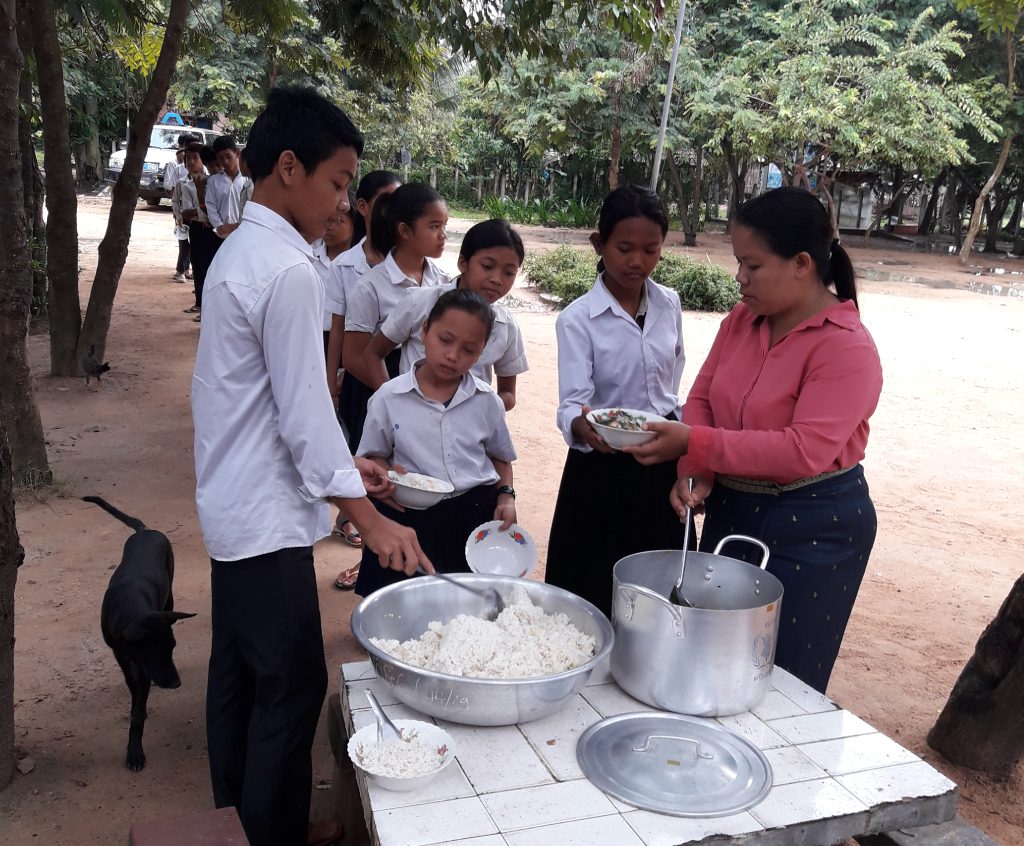
Since its inception in 2011, the WFP Centre of Excellence has been contributing to governmental efforts to strengthen national school feeding in Asian countries. Working in close collaboration with WFP country offices and regional bureau and utilizing different approaches and methodologies, the Centre has provided technical assistance and policy dialogue opportunities to 10 countries in the region.
Governmental delegations from nine countries have participated in study visits to Brazil, to understand how the Brazilian zero hunger strategy is structured and how the school feeding programme is connected to other sustainable development policies. The Brazilian example and good practices have inspired some of those countries to create, strengthen, improve and invest in their own national school feeding models.
Bangladesh, for example, came to Brazil for a study visit in 2012 and promoted changes in school meals menu. The Philippines undertook a study visit in 2013 and afterwards the government decided to allocate more resources to a home-grown school feeding programme.
Cambodia is in the process of reviewing its national school feeding roadmap to transition from a WFP-led school feeding programme to a government led programme. Lao PDR made a visit to Brazil in 2014 and is working to strengthen the links between school feeding, local agriculture and social and nutrition policies. In 2017, the government of Myanmar sent a delegation for a study visit to Brazil and an action plan to was prepared.
Pakistan undertook a study visit with focus not on school feeding, but on the broader zero hunger strategy adopted by Brazil. The country had launched its zero hunger policy in 2012 and the visit to Brazil in 2014 helped the government structure its implementation. The WFP Centre also supported an expert joint with the country office in the country from 2014 to 2016 to work with the federal government, provincial governments and WFP country office in the implementation of the policy.
Timor Leste has participated in a study visit to Brazil in 2011. The WFP Centre and experts from the Brazilian Government provided remote support to the country in 2016, including by participating in an event via internet. The government took a resolution, approved by the Parliament, to prioritize efforts to ensure access to good nutrition for women and children.
Remote support has also been the approach adopted by the WFP Centre to work with Nepal. Revision of documents and technical counselling are some of the ways in which the Centre has been collaborating with the country. In Nepal, the WFP Centre is supporting the planning stages of two pilot studies, one on school feeding modalities and another on the development of nutrition-sensitive literacy materials.
In 2017, the WFP Centre received a delegation from China to exchange experiences in food security and nutrition and to see firsthand initiatives such as the Brazilian school feeding programme. The delegation also took the opportunity to learn about the South-South cooperation initiatives conducted by Brazil and by the WFP Centre.
The WFP Centre of Excellence will explore remote assistance for country capacity development in the region – aiming to fully seize the potential South-South cooperation initiatives .




